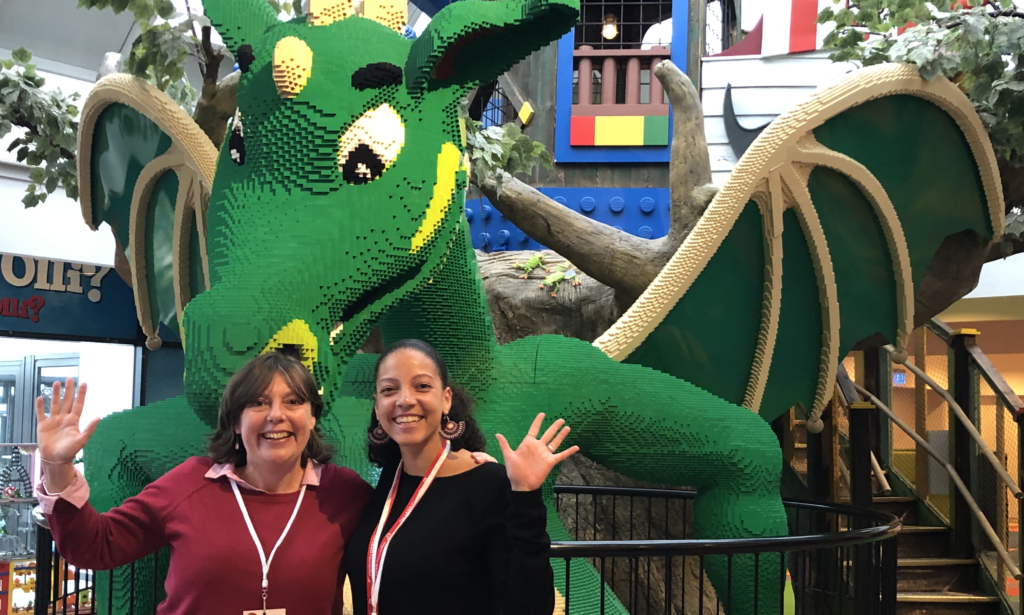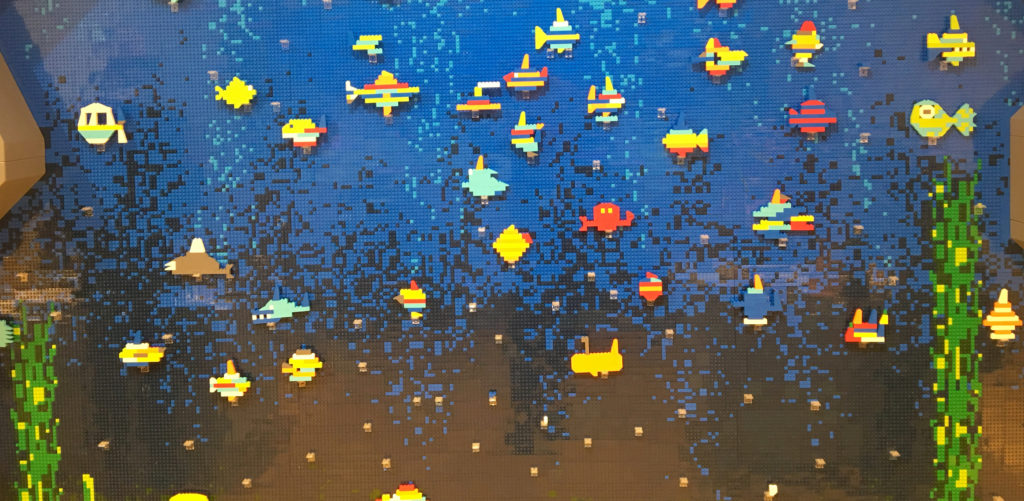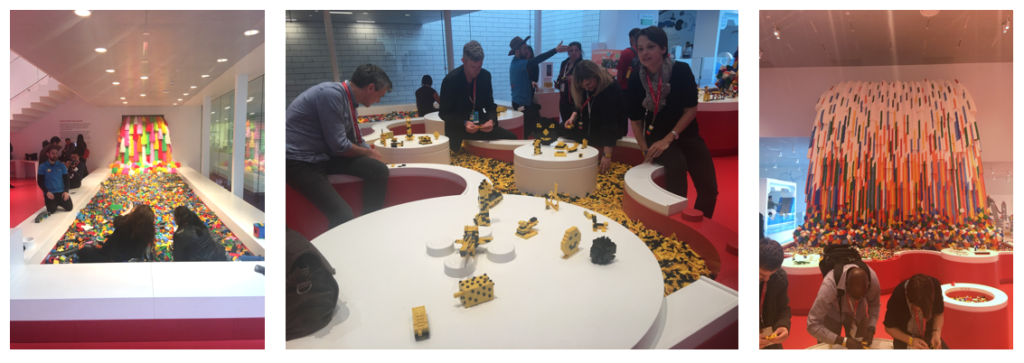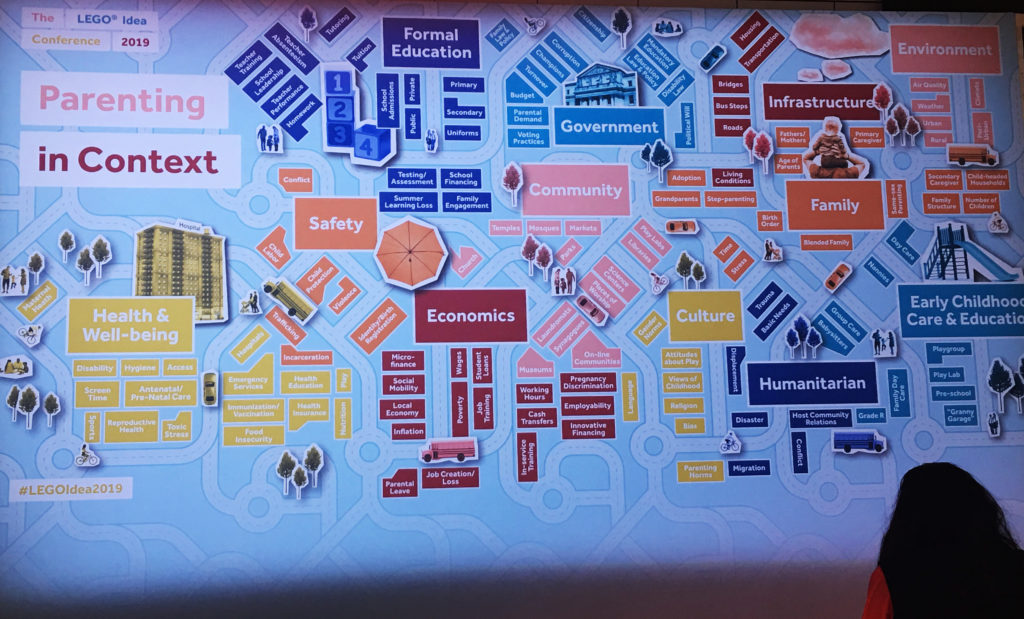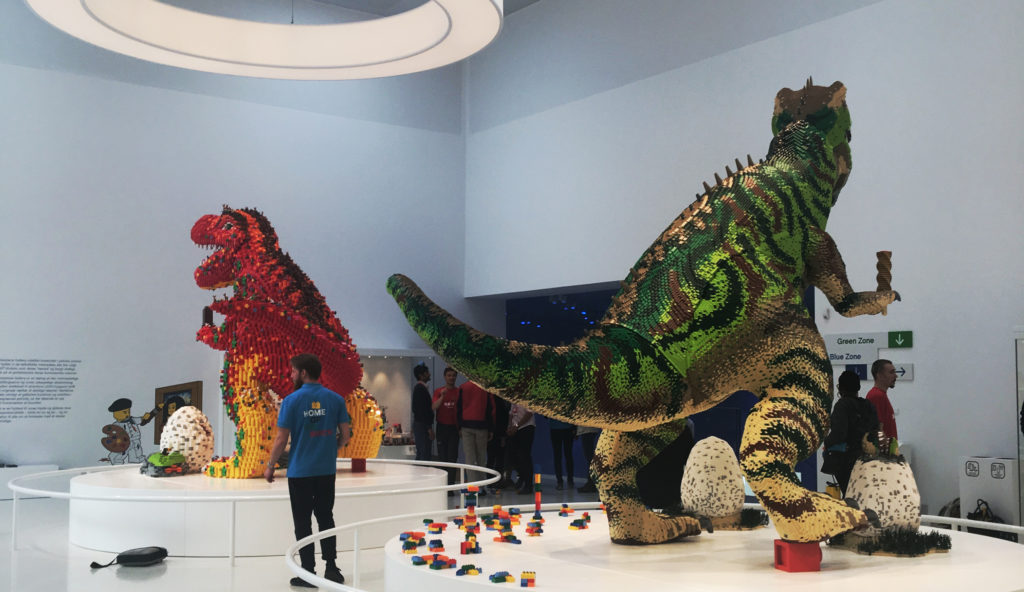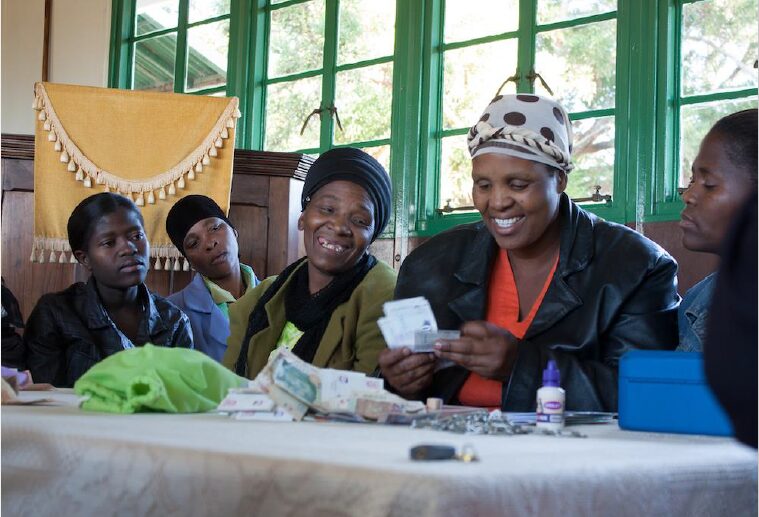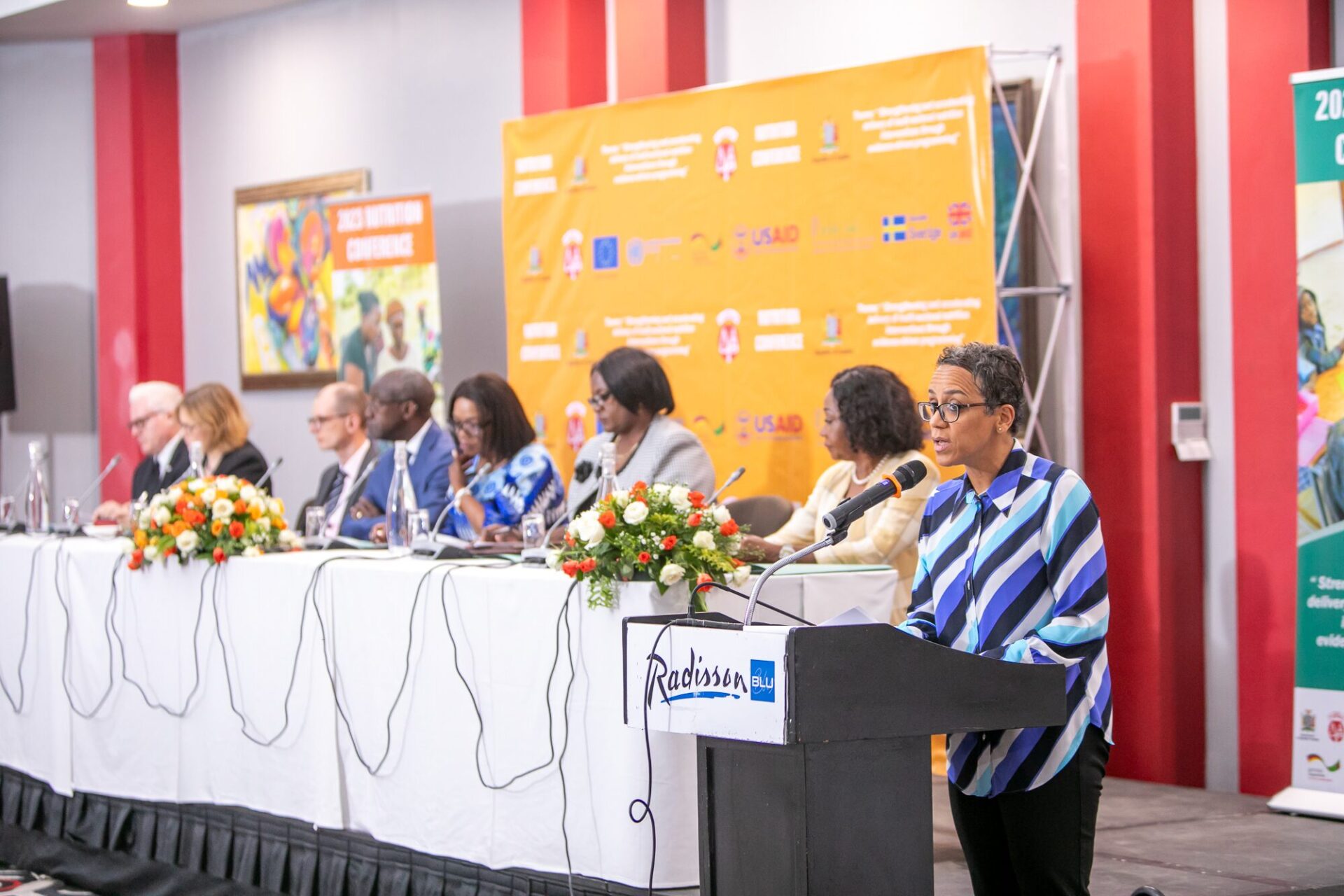By Margaret Roper and Leticia Taimo
Introduction
From 1-3 April 2019, over 400 thought leaders from around the world – including academics, practitioners, innovators, educators, government officials and social entrepreneurs – converged in Billund, Denmark for the 2019 LEGO Idea Conference. Khulisa’s Margaret Roper and Leticia Taimo were amongst the conference attendees.
The annual conference aimed to further the LEGO Foundation’s goal of building a future where learning through play empowers children to become creative, engaged, lifelong learners. Its work is about re-defining play and re-imagining learning.
This year’s theme, “Unlocking the Power of Parenting”, aimed to explore how caregivers’ knowledge, attitudes, skills and behaviours can support children to develop a breadth of skills to enable them to thrive and succeed in the 21st Century.
Key learnings
We could not help but experience the conference with our Monitoring, Evaluation and Learning (MEL) hats on. This is what we take back to Khulisa and South Africa from the conference:
1. “Play is the new black” in MEL
We’ve been working in education and early childhood development for a while now, so the idea of play as being critical for children is engrained in the work we do. But what really stood out for us was how we can use a more playful approach in the way we do our evaluation work. Interacting with people forms an essential part of collecting data for MEL, so why not make that process more fun? There is always an opportunity to innovate and make our data collection processes more interactive, and in this way collect even richer data. For example, conference used what they called “paddle moments” during plenary sessions. Each conference participant had a paddle board on their seat (it was a white board that looked like a table tennis racket with a marker attached to it). This allowed the facilitator/presenter to ask questions and get responses from the audience through a quick write up or drawing on each person’s paddle board. This can be a useful participatory activity to incorporate in our workshops or focus group discussions with evaluation stakeholders.
2. Sharing is caring: Linking learning to practice
There is value having collaborative spaces for sharing and eliciting learning. This is how we share and learn about what works, what doesn’t work and what we can do about it. It is also an opportunity to learn from our mistakes (as parents and caregivers, as well as programme designers, implementers and evaluators).
We need to think more about how we link our learning to practice, how to share feasible and actionable recommendations from evaluations for programme adaptation.
During the conference, the Interactive Game Show on parent perceptions invited 3 audience members to participate in quiz style game show, asking questions related to research findings related to parents’ perceptions around education and play. Each contestant had to guess the answer and the closest correct answer would get a point. Other Audience members were also allowed to play using their paddle boards and putting them up to help game show contestants.
The Interactive Game Show illustrated a different way of presenting research results which allowed different learning styles and addressed audience needs. For example, they might be more interested in the facts, or where to go for more information, or insights into global differences in parenting policy or challenges parents faced, or all of the above!
The conference created a space where people were free to share, and everyone felt they belonged to this community – even if you were not a parent. Evaluations can be processes that bring people together to share ideas in a safe space that allows for diverse experiences and insights, while at the same time it can facilitate collaborative exploration of existing perceptions, new ideas and collective recommendations to achieve the same goal (while respecting that there are different pathways of how this can be achieved).
3. Moving beyond the number: How do we measure parenting programmes?
Our understanding of measuring the effects of parenting programmes was enhanced through the exploration of key themes of the conference: context, agency and giving voice to parents. What makes implementation more effective will differ across contexts, however many programmes face the challenge of how to strengthen the link between parents or caregivers having the intention to change a practice and the actual behaviour. Importantly, evaluations must explore not only parent decision-making but how parents engage and are active participants in their child’s – and their own – learning. Evaluators need to listen to the voices of parents.
Conclusion
The conference certainly lived up to its expectations and objectives, providing a vibrant and interactive experience where we were able to connect and collaborate, play and learn, debate and disrupt, inspire and get inspired!
We left feeling excited by the work many organisations are doing to support primary caregivers in engaging children in playful experiences and to take forward some play in our own MEL work.
Our commitment to support organisations in building evidence, encouraging sharing and linking learning to practice is more alive than ever.

